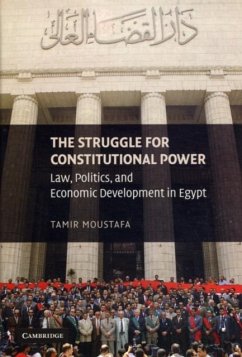
Degrees of Democracy (eBook, PDF)
Politics, Public Opinion, and Policy
Versandkostenfrei!
Sofort per Download lieferbar
22,95 €
inkl. MwSt.
Weitere Ausgaben:

PAYBACK Punkte
11 °P sammeln!
This book develops and tests a 'thermostatic' model of public opinion and policy. The representation of opinion in policy is central to democratic theory and everyday politics. So too is the extent to which public preferences are informed and responsive to changes in policy. The coexistence of both 'public responsiveness' and 'policy representation' is thus a defining characteristic of successful democratic governance, and the subject of this book. The authors examine both responsiveness and representation across a range of policy domains in the United States, the United Kingdom, and Canada. T...
This book develops and tests a 'thermostatic' model of public opinion and policy. The representation of opinion in policy is central to democratic theory and everyday politics. So too is the extent to which public preferences are informed and responsive to changes in policy. The coexistence of both 'public responsiveness' and 'policy representation' is thus a defining characteristic of successful democratic governance, and the subject of this book. The authors examine both responsiveness and representation across a range of policy domains in the United States, the United Kingdom, and Canada. The story that emerges is one in which representative democratic government functions surprisingly well, though there are important differences in the details. Variations in public responsiveness and policy representation responsiveness are found to reflect the 'salience' of the different domains and governing institutions - specifically, presidentialism (versus parliamentarism) and federalism (versus unitary government).
Dieser Download kann aus rechtlichen Gründen nur mit Rechnungsadresse in A, B, BG, CY, CZ, D, DK, EW, E, FIN, F, GR, HR, H, IRL, I, LT, L, LR, M, NL, PL, P, R, S, SLO, SK ausgeliefert werden.













